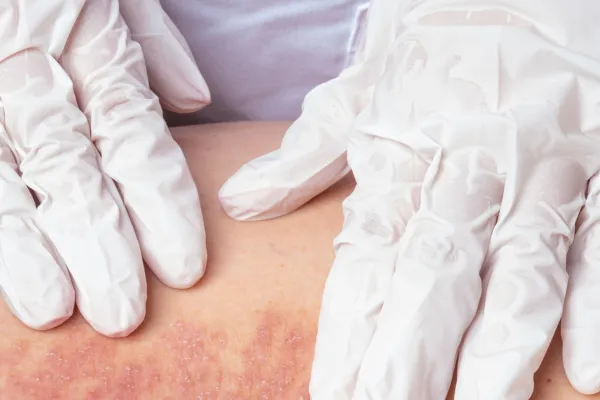About Arthritis
Arthritis is a general term used to describe a range of conditions affecting the joints, the areas where two or more bones meet. It is characterized by symptoms such as pain, stiffness, swelling, and reduced range of motion in the affected joints. There are many types of arthritis, with osteoarthritis and rheumatoid arthritis being among the most common. While arthritis is more commonly seen in older adults, it can affect people of all ages, including children. Treatment for arthritis often involves medication, physical therapy, lifestyle changes, and in severe cases, surgical intervention, all aimed at managing symptoms and improving quality of life.

Who Should Handle Musculoskeletal Symptoms in Psoriasis Patients: Dermatologists or Rheumatologists?
A compelling debate took place at the annual meeting of the Group for Research and Assessment of Psoriasis and Psoriatic Arthritis (GRAPPA) in 2024. The central topic was whether musculoskeletal (MSK) symptoms in patients with psoriasis should be primarily managed by dermatologists or rheumatologists. With both specialties playing vital roles in the care of psoriasis patients, the discussion aimed to highlight the best approach for managing Psoriatic Arthritis (PsA) and related MSK symptoms.
The Rheumatologist’s Perspective: Prioritizing Early Diagnosis
Dr. Fabian Proft, a rheumatologist at Charité — Universitätsmedizin Berlin, advocated for rheumatologists to take the lead in managing musculoskeletal symptoms in psoriasis patients. He emphasized the importance of early and accurate diagnosis, particularly to distinguish between inflammation linked to PsA and other mechanical issues, such as athletic injuries. In his presentation, Dr. Proft underscored that advanced imaging techniques, like MRI, are vital tools to avoid overdiagnosis and overtreatment.
He cited the example of a psoriasis patient suffering from Achilles tendinitis while training for a marathon. Despite initial concerns that the pain was PsA-related, it was ultimately attributed to mechanical stress from exercise. Dr. Proft stressed that in such cases, careful assessment and imaging are key to ensuring accurate treatment.
The Dermatologist’s Response: A Collaborative Approach
Dr. Laura Savage, a consultant dermatologist from Leeds Teaching Hospitals NHS Trust, offered a different perspective. She suggested that both dermatologists and rheumatologists should work together in managing these patients. Dr. Savage highlighted that dermatologists are often in a unique position to catch early signs of psoriatic arthritis, given that skin disease precedes joint symptoms in the majority of cases. She noted that there is typically a 7-12 year delay between the onset of skin symptoms and the development of arthritis in psoriasis patients, making early detection and intervention crucial.
Dr. Savage pointed to studies demonstrating that biologics used to treat skin lesions can also prevent the progression of PsA. She emphasized that dermatologists should take a proactive role in recognizing early musculoskeletal symptoms, such as joint pain and fatigue, and refer patients to rheumatologists when necessary.
A Middle Ground: Advocating for Co-management
Both Dr. Proft and Dr. Savage agreed on the need for a balanced approach. While rheumatologists bring expertise in managing advanced musculoskeletal symptoms, dermatologists are essential for early detection and intervention, especially in preventing the progression of PsA. Dr. Savage encouraged dermatologists not to leave patients on ineffective therapies but to consider escalating treatments and collaborating with rheumatologists to provide comprehensive care.
Dr. Savage also highlighted that complex cases should be managed by rheumatologists, but dermatologists have an important role in addressing the broader needs of psoriasis patients, including managing early symptoms and guiding treatment before joint damage occurs.
The Path Forward for Psoriasis and PsA Patients
For patients living with psoriasis, this discussion highlights the importance of a collaborative, multidisciplinary approach to care. Dermatologists and rheumatologists both play critical roles in preventing long-term disability by detecting and managing musculoskeletal symptoms early. Early intervention, precise diagnosis, and co-management between these two specialties can significantly improve outcomes for patients at risk of developing psoriatic arthritis.
Have a question?
We're Here to Help
By providing my phone number, I agree to receive text messages from the business.


